Connecting the Revolution of Oeillets slum to the Nantes Métropole sewerage network
Description of the emergency context
The inhabitants of this slum have been residing in this neighborhood for many years. The site has 16 caravans with 35 inhabitants, including 8 minors.
Prior to the joint intervention by Solidarités International and Nantes Métropole, residents did not have access to safely managed sanitation. By their own means, they had built latrines which they moved as soon as the holes serving as a receptacle for excrement were full.
Since these facilities were not watertight, they posed an environmental risk linked to soil pollution. It also represented a threat to the public health of the inhabitants but also tarnished their dignity.
Description of the treatment process
Since their installation on the site, the inhabitants have been able to benefit from access to water provided by the NGO Solidarités international and from an electricity meter set up by the city of Nantes.
In 2021, two toilet blocks were installed by the NGO Solidarités International. These sanitary blocks are equipped with flush toilets.
In partnership with the metropolis of Nantes, these toilet blocks have been connected to the public sewage network so that the waste water is transported and treated in a treatment station.
Assessment & design (feasibility)
The inhabitants of the slum were closely involved in the choice of the technical solutions implemented. They were asked about their preferences for flush toilets or dry toilets.
This community mobilization upstream of the project made it possible to reinforce the appropriation of the solutions implemented and thus to ensure the good maintenance of the infrastructures.
Construction
The toilet blocks were installed by the NGO Solidarités International, which rents them to a private company.
Community mobilization revealed a preference for having one toilet block for women and one for men. In order to ensure secure access to the toilet blocks day and night, lighting has been installed.
Screens have also been installed at the entrance to the blocks in order to improve user privacy and limit the risk of use by people from outside the site.
These sanitary blocks are connected to the electricity network and have hand-washing points and heating.
Since August 2021, these two sanitary blocks have been connected to the Nantes Métropole sanitation network. Wastewater is transported and treated in one of the stations in the metropolis. The connection was carried out by the delegate company of Nantes Métropole. Gray water seeps into the ground.
Operation and maintenance
The slum dwellers were closely involved throughout the project.
A regulation for the use of collective toilets has been co-constructed with the users in order to ensure the proper maintenance and use of the infrastructures over time. These rules of use have been written in French and Romanian.
An awareness campaign was also conducted with users to ensure sustainable use of water resources. A meter has been installed and makes it possible to monitor water consumption in the shantytown.
Lessons learned
Solution adapted to a site stabilization policy, advantageous in the long term but difficult to implement.
Numerous authorizations are required to carry out earthworks for connection to the non-collective sanitation network. It is important to anticipate these deadlines in the schedule of activities.
Strengths
Many lessons can be drawn from this project, which is the first example of connecting a slum in France to a public sewage network.
The analysis of the economic data makes it possible to highlight the lower cost that this solution represents for the community but also the users.
Connection to the public network makes it possible to have sanitation managed in complete safety. Wastewater is treated in stations in mainland France and effluent quality control is carried out.
The intervention of Solidarités International has made it possible to remove many barriers linked to the informal nature of the occupation of the land by the inhabitants. The NGO thus opened a contract to connect the shantytown to the city's water network. The opening of a contract made it possible to remove many administrative constraints.
Acclaimed by the inhabitants of the slums of the Nantes conurbation, and whose appropriation by the latter is the most obvious.
Economical in the long term.
Ex-situ management by the sewer network greatly limits the need for intervention;
Weaknesses
The illegal nature of the shantytown constitutes an obstacle to the sustainability of the solutions implemented.
The impossibility of subscribing to a subscription contract due to the illegal occupation of the land led Solidarités International to take out a water supply contract in its name.
This solution currently allows the water connection of the camp but also the evacuation of waste water. The sustainability of this system is therefore directly linked to the ability of Solidarités International to mobilize funding and maintain its roots in this territory.
Technical installation difficulties: connection to the AC network requiring the intervention of metropolitan services.
Higher initial cost.
Ownership of the land can be a brake.
Need for a water connection due to flush consumption.
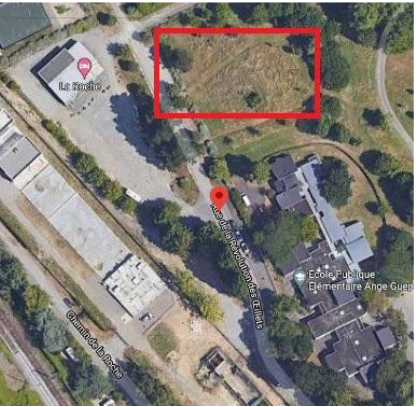
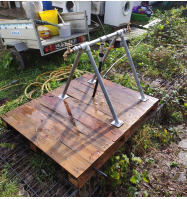
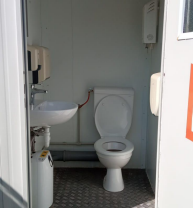
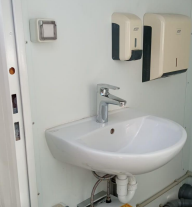
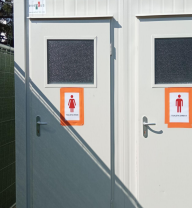
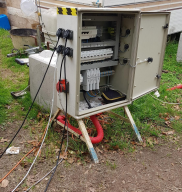
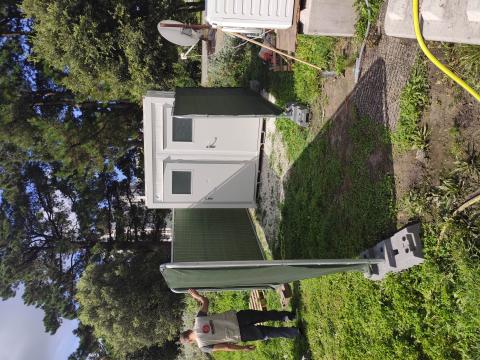
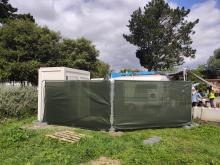
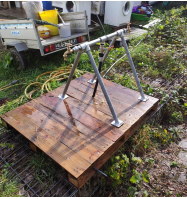
Add new comment